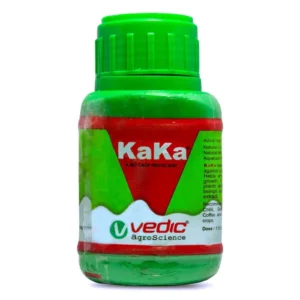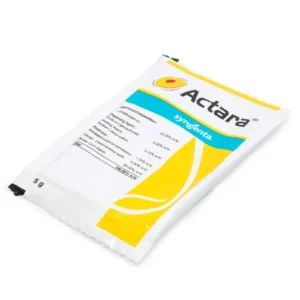Hydrogen Peroxide for Plants – The Secret Weapon for Thriving, Disease-Free Greenery
Unlock the full potential of your garden with it—a simple, powerful, and affordable solution to supercharge your plant health, boost growth, and eliminate harmful pathogens from your soil and roots. Whether you’re a passionate home gardener, a hydroponic grower, or managing a small farm, it is the game-changer you didn’t know your plants needed.
What is Hydrogen Peroxide?
Hydrogen peroxide (H₂O₂) is a naturally occurring compound made up of two hydrogen atoms and two oxygen atoms. It looks and acts like water, but with an extra oxygen molecule, it packs an oxidative punch. When used correctly in gardening, this additional oxygen can lead to remarkable improvements in plant vitality.
This powerful oxidizer is best known for its disinfectant properties. But in the gardening world, hydrogen peroxide goes beyond sanitizing—it aerates soil, stimulates root development, treats diseases, and promotes faster, healthier plant growth.
Benefits of Using Hydrogen Peroxide for Plants
1. Oxygenates Soil for Healthy Roots
Roots need oxygen to absorb nutrients effectively. Unfortunately, compacted or poorly draining soil can suffocate roots, leading to stunted growth or even plant death. Hydrogen peroxide breaks down into water (H₂O) and oxygen (O₂) upon contact with soil. This release of oxygen boosts root respiration and improves nutrient uptake, resulting in more vigorous and lush plant growth.
Why it matters: More oxygen means happier roots, and happier roots mean thriving plants.
2. Fights Root Rot and Fungal Infections
Root rot is one of the most common and devastating plant diseases caused by overwatering and poor soil drainage. Hydrogen peroxide combats the fungi and bacteria that cause root rot by oxidizing them on contact. It acts as a natural antifungal and antibacterial agent, helping to sterilize the root zone without harming your plant.
How to use: Dilute to 3% solution and apply directly to affected roots or as a soil drench.
3. Boosts Seed Germination Rates
Soaking seeds in a hydrogen peroxide solution before planting can increase germination rates significantly. The peroxide softens the seed coat, allowing water to penetrate more easily and activate growth enzymes. It also kills off any pathogens that might hinder the seed’s development.
Result: Faster sprouting, stronger seedlings, and more uniform plant development.
4. Natural Pest and Disease Control
It can help control a wide range of garden pests and diseases. From aphids and spider mites to powdery mildew and bacterial leaf spot, a properly diluted spray can disinfect leaves and repel pests—without resorting to harsh chemical pesticides.
Bonus: It also cleans your tools and containers, reducing the risk of cross-contamination.
5. Improves Hydroponic Systems
For hydroponic growers, maintaining sterile, oxygen-rich water is crucial. It helps oxygenate the water and keeps the reservoir free of algae, bacteria, and biofilm buildup that can clog systems and stunt growth.
Just a small amount added to your hydroponic system can lead to stronger, cleaner root systems and healthier plants overall.
Safe Usage Guide: How to Use Hydrogen Peroxide for Plants
General Dilution Guidelines:
Always use food-grade (35%) or household grade (3%), and dilute properly before applying to plants.
- For watering: Mix 1 teaspoon of 3% hydrogen peroxide per 1 cup (8 oz) of water.
- For root rot: Mix 1 tablespoon of 3% hydrogen peroxide per 1 cup of water. Water directly into the soil.
- For foliar spray: Mix 1 tablespoon per 1 quart (32 oz) of water. Spray leaves lightly.
- For seed soaking: Mix 1 oz of 3% hydrogen peroxide in 1 pint of water. Soak seeds for 15–30 minutes, then rinse.
Important: Always test a small area before full application and avoid overuse, which can harm beneficial microbes and roots.
Which Plants Benefit from Hydrogen Peroxide?
It is incredibly versatile and safe for most plant species when used properly. Whether you’re growing vegetables, fruits, herbs, flowers, or indoor houseplants, H₂O₂ can give them a healthy edge.
Some especially responsive plants include:
- Tomatoes and peppers: Boost fruiting and protect against blight.
- Leafy greens: Prevent fungal diseases like downy mildew.
- Orchids and succulents: Prevent root rot and keep soil bacteria-free.
- Roses: Treat black spot and powdery mildew.
- Houseplants: Great for aerating compacted soil and repelling gnats.
Why Choose Our Hydrogen Peroxide for Plants?
We offer high-quality, stabilized hydrogen peroxide specifically packaged for safe and effective use on plants. Our formula is:
✅ 100% Pure and Additive-Free
✅ Safe for Organic Gardening
✅ Environmentally Friendly & Non-Toxic
✅ Tested for Efficacy in Horticulture Use
Whether you’re dealing with pests, poor soil aeration, or simply want to enhance your plant’s growth naturally, our it is a must-have tool in your gardening arsenal.
Frequently Asked Questions (FAQs)
Q: Will hydrogen peroxide harm my plants?
Only if misused. When diluted properly, hydrogen peroxide is completely safe and even beneficial for most plants. Always follow dilution guidelines and avoid excessive use.
Q: How often should I use it?
For regular maintenance, use it once every 2–3 weeks. For treating infections or root issues, apply weekly until resolved.
Q: Can I use hydrogen peroxide on edible plants?
Absolutely! Hydrogen peroxide is safe for vegetables, fruits, and herbs. It breaks down into water and oxygen, leaving no harmful residue.
Q: What strength of hydrogen peroxide is best?
3% hydrogen peroxide is ideal for home gardening. It’s easy to dilute and safer to handle. Food-grade (35%) must be handled with caution and should always be heavily diluted.
Final Thoughts: Hydrogen Peroxide – A Gardener’s Best-Kept Secret
Hydrogen peroxide for plants is more than just a trend—it’s a science-backed, natural solution that can revolutionize the way you grow. Whether you’re dealing with tough soil, battling plant diseases, or trying to breathe new life into tired greenery, H₂O₂ offers a simple yet effective way to nurture your plants back to life.
With the power to oxygenate, disinfect, and stimulate, hydrogen peroxide is an all-in-one garden ally. No synthetic chemicals, no complicated treatments—just one trusted bottle and countless benefits.











Reviews
There are no reviews yet